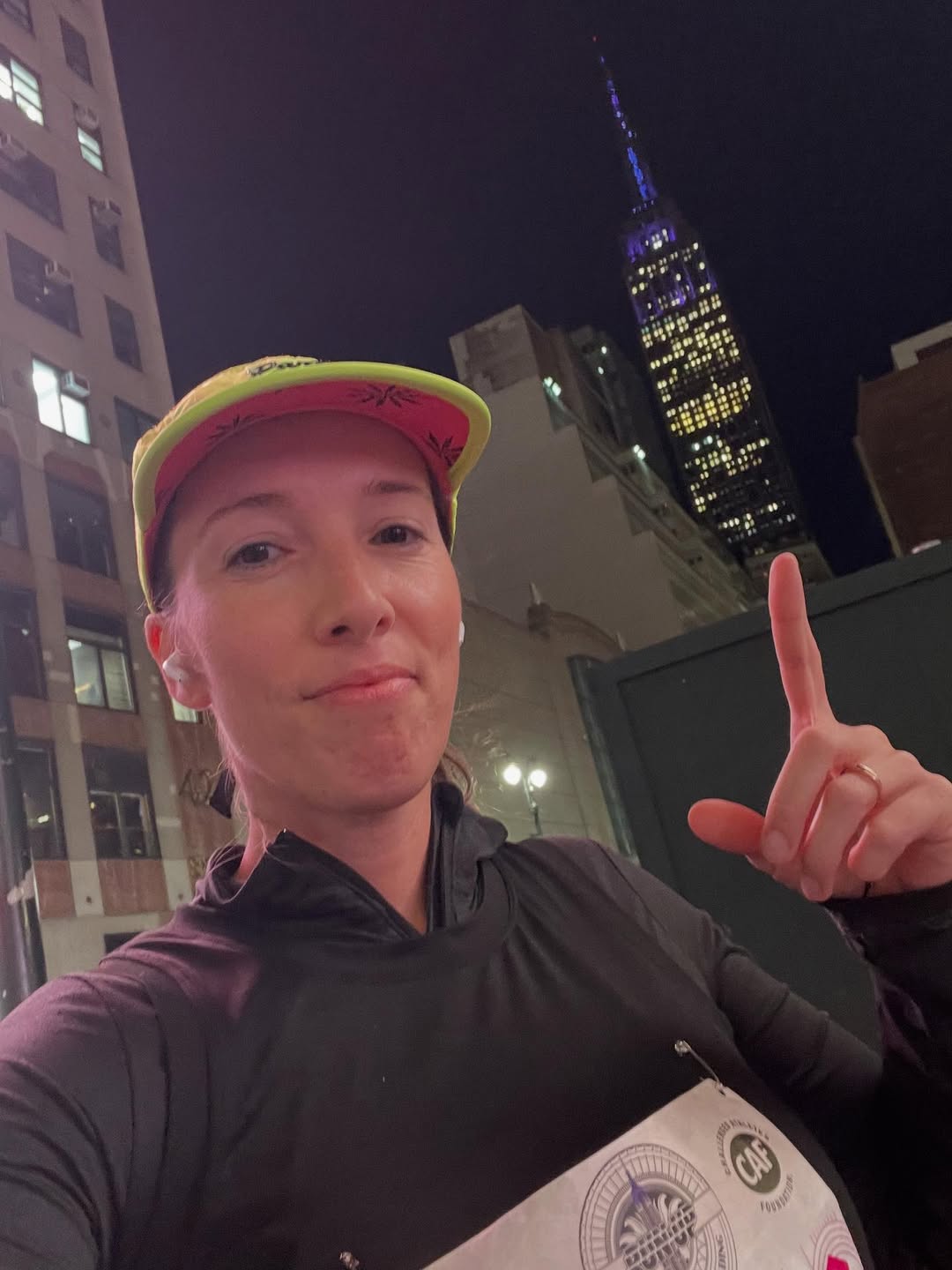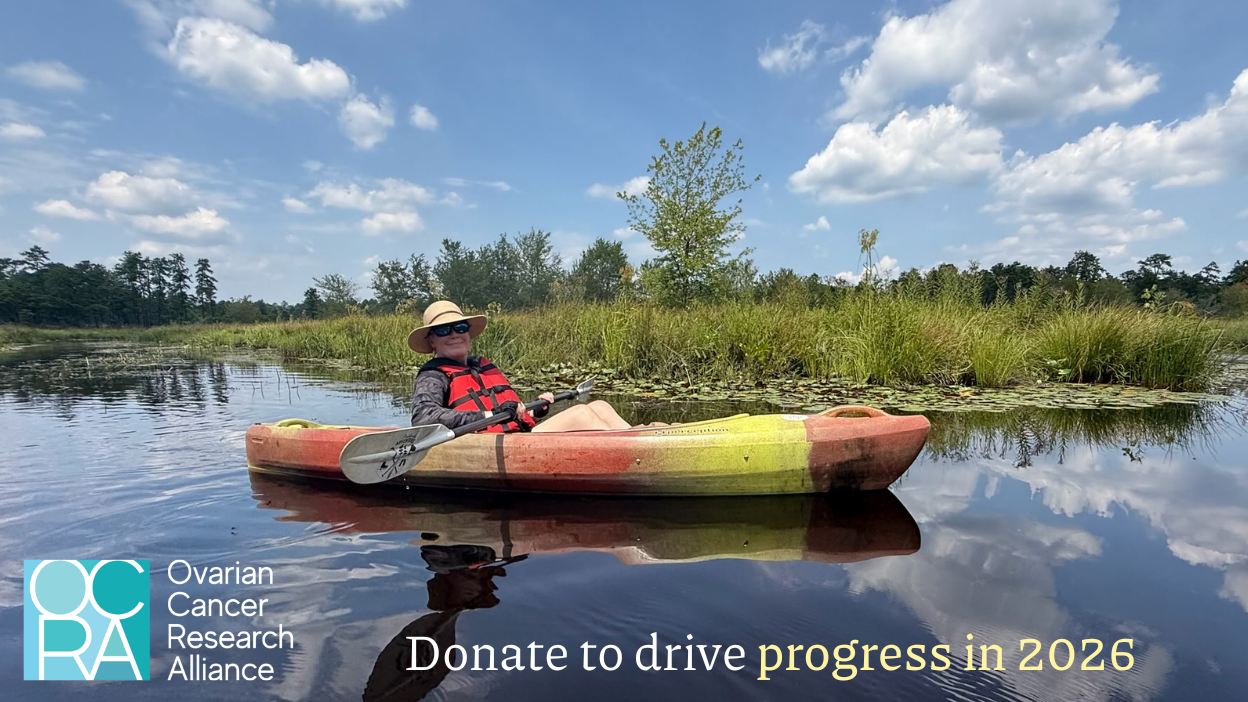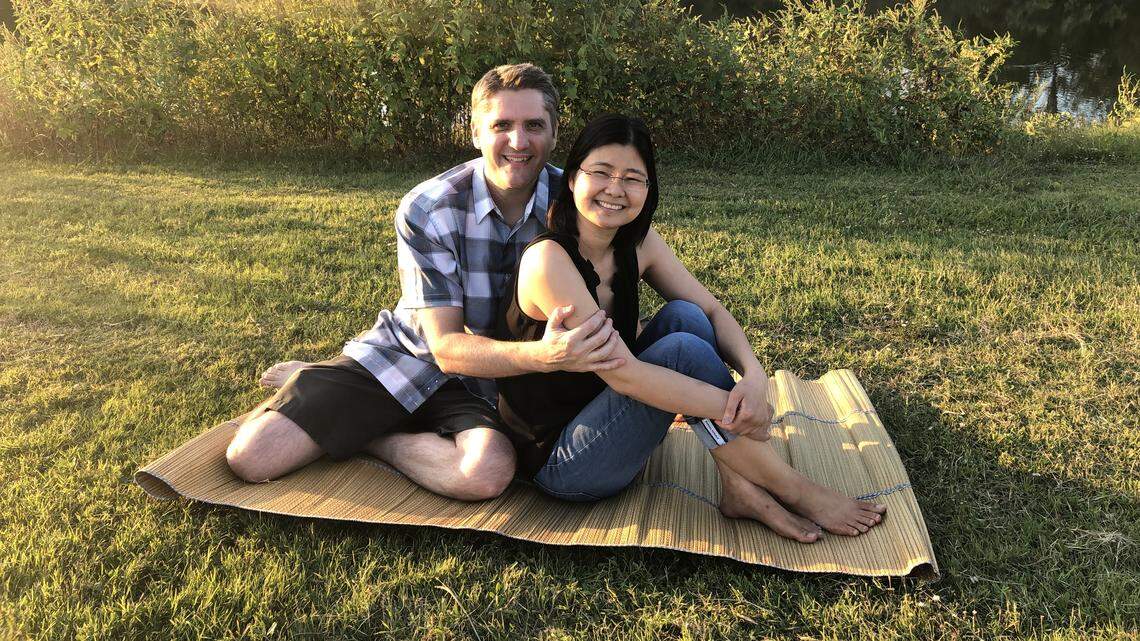Being diagnosed with ovarian cancer or any gynecologic cancer can be an overwhelming experience, and it can help to know that you aren’t alone. Explore ovarian cancer survivor stories as they get real, sharing their experience with navigating ovarian cancer, along with tips and resources that helped them during their most challenging moments.
Read their valuable insights, and be sure to check out our list of helpful resources and programs for the gynecologic cancer patient and survivor community at the end of the article.
If you’re a cancer survivor or are currently in treatment, you can share your ovarian cancer story here.
Real Voices, Real Impact
Read ovarian cancer stories shared by members of OCRA’s community, and find new ways to be inspired and make a difference.
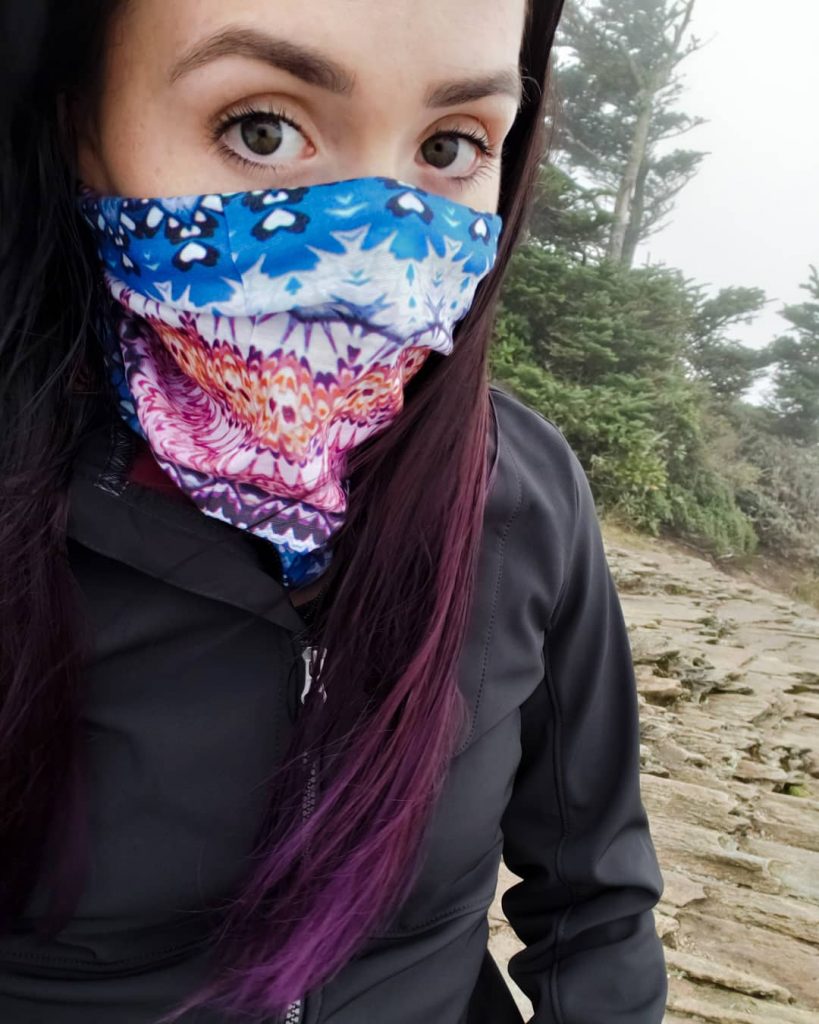
Learning to feel strong again
“I felt so alone when it came to finding someone who actually got it. I have friends my age, but they weren’t going through what I was going through.”
Jamie Davey lives in Trumbull County, Ohio and was 26 years old when she was diagnosed. She’s also an open book, about everything from her “buns and guns” class at the gym, to how you can best support friends and loved ones facing ovarian cancer and what it’s like being a 28-year-old in menopause.
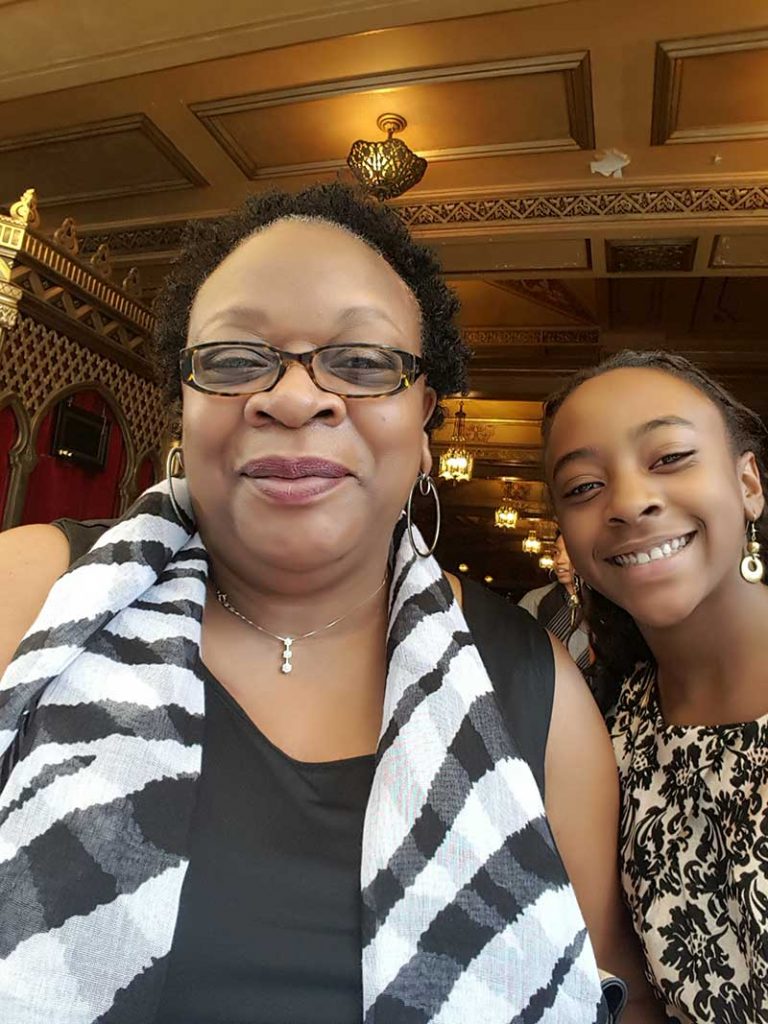
Giving voice to the unheard
“I had made sure so many women had the resources and support they needed, the follow up care. I was always so active in making sure things were in place for other people, I just never thought about me being diagnosed.”
Yvette Jives, a nurse and social worker in North Carolina, has spent a lifetime helping others. After her diagnosis, in order to address what she saw as a need for ovarian cancer awareness and support in her community, as well as the disproportionate impact of ovarian cancer on patients of color, she founded Health Education and Resources (HERS).
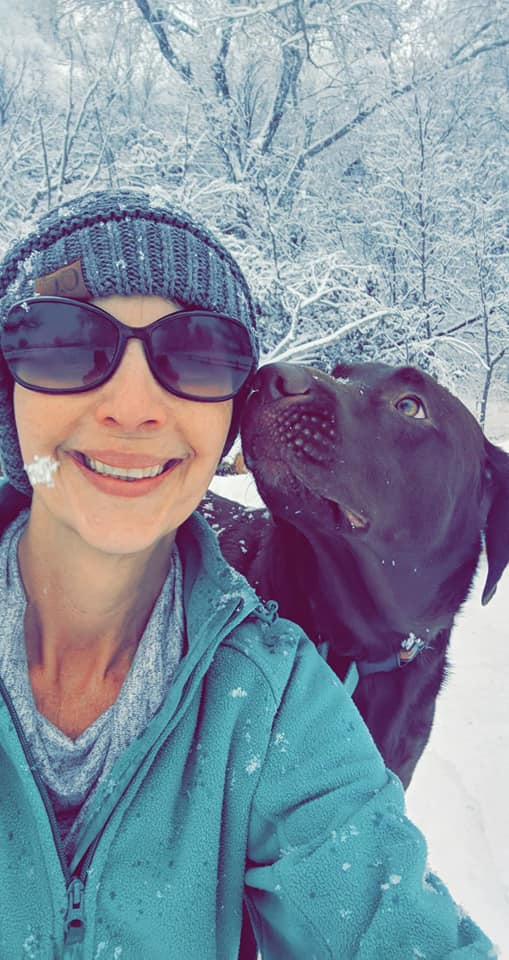
Breathe in peace; breathe out fear
“Take things one step, one battle, one victory at a time. Just get through today; win today. When you take the good out of that day, then you won that one battle.”
After being diagnosed with a rare form of ovarian cancer, Stacy Saravo found hope and inspiration through OCRA’s Woman to Woman program and Inspire online community. To help give rising medical professionals a patient perspective on ovarian cancer, Stacy volunteers with OCRA’s Survivors Teaching Students program.
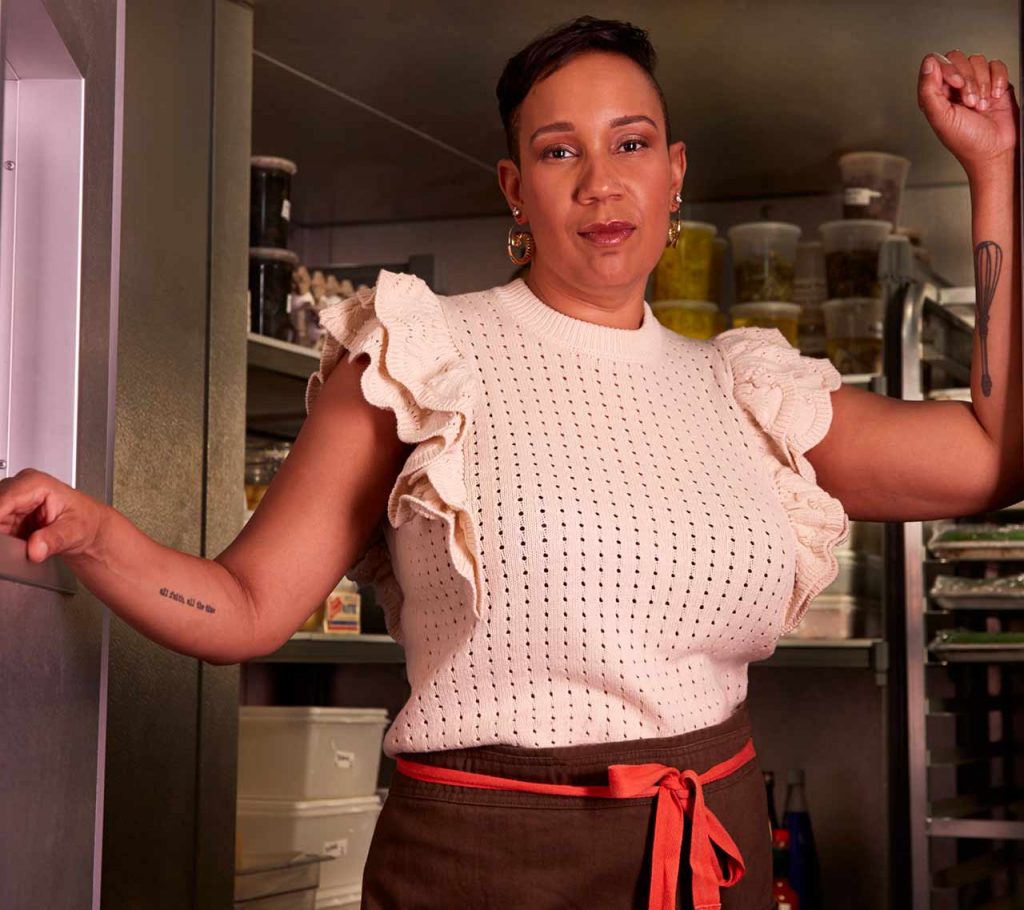
Talking representation and resources
“I never say, ‘I have cancer,’ because it’s not mine. I’m dealing with it.”
A lover of art and travel and people, one-time social worker and cruise line cook, and now celebrity chef, Elle Simone can also add social entrepreneur to her list of accomplishments. Elle is an ovarian cancer survivor and OCRA board member who is determined to use her platform to raise awareness about the disease.
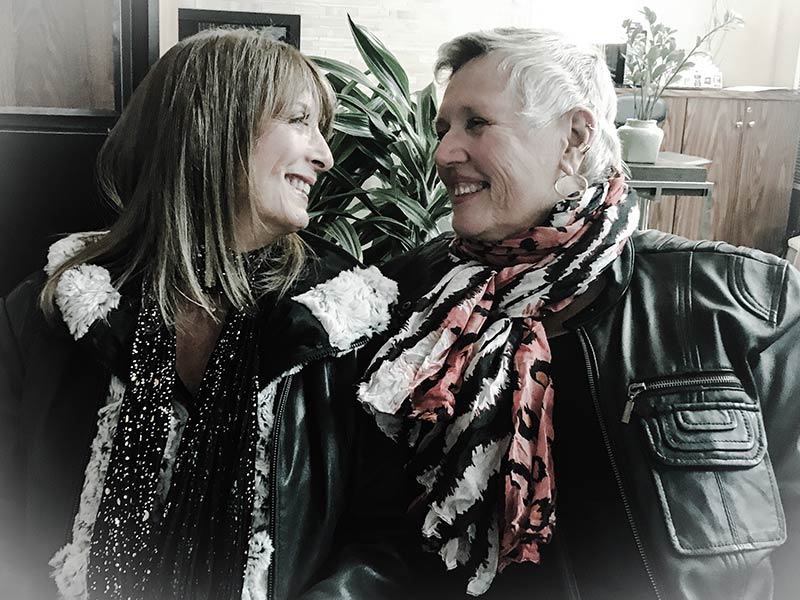
Raising awareness of a silent epidemic
“I’m not saying this is a diagnosis anyone would want to get, but it makes you sort of laser focus on what is important in life. It makes you reassess and say, ‘Where do you want to be? Who do I want to be with? What do I want to be doing?'”
Janice Murphy, diagnosed with ovarian cancer at age 62, is committed to sharing her ovarian cancer story to raise awareness not just about the disease itself, but about what she believes to be an extra risk of ovarian cancer within the LGBTQIA+ community.
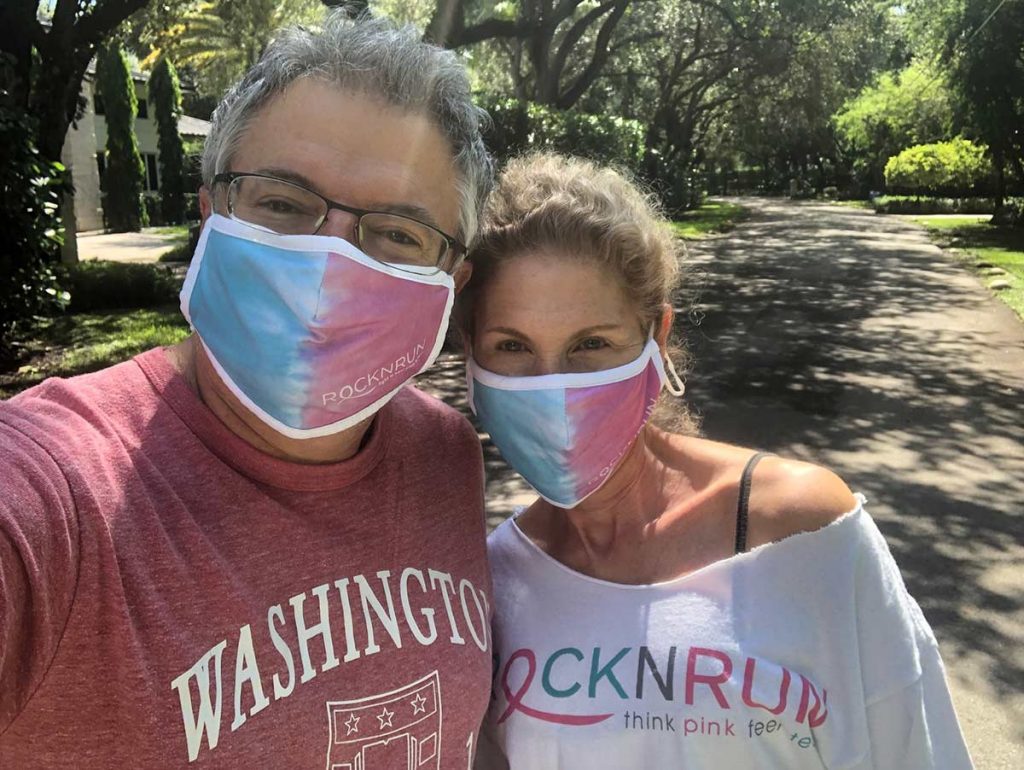
How to be a hero in a pandemic
“I just really tried to visualize being healthy and I would imagine a little Pac-man eating up my cancer cells.”
More than a decade after her ovarian cancer diagnosis, Amy Hollub is helping others learn about the importance of family history and genetic testing, and raising vital funds for research, by hosting an annual Rock ‘n Run event in Miami.
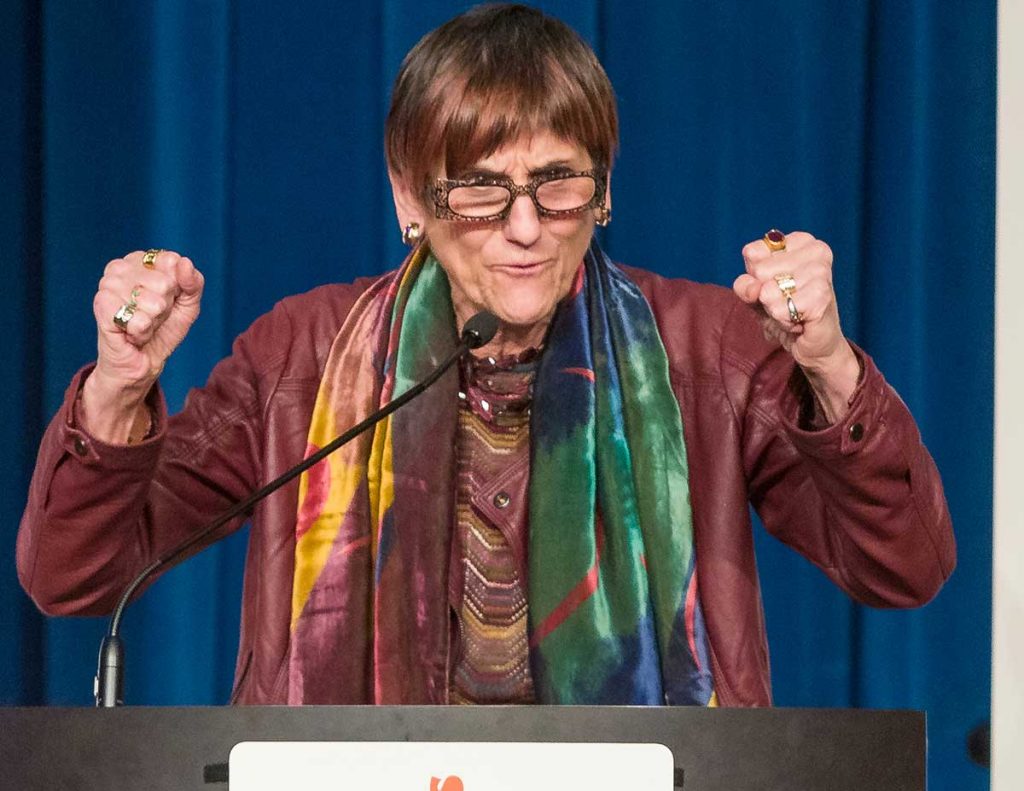
Making government work for ovarian cancer patients
“I consider myself extremely fortunate, but you can’t rely on luck. I’m alive because of the grace of God and biomedical research. That research is critical.”
US Representative Rosa DeLauro (D-CT) is the Chair and founder of the Congressional Ovarian Cancer Caucus, and an ovarian cancer survivor herself. She’s committed to using her legislative platform to make a difference for the ovarian cancer community.
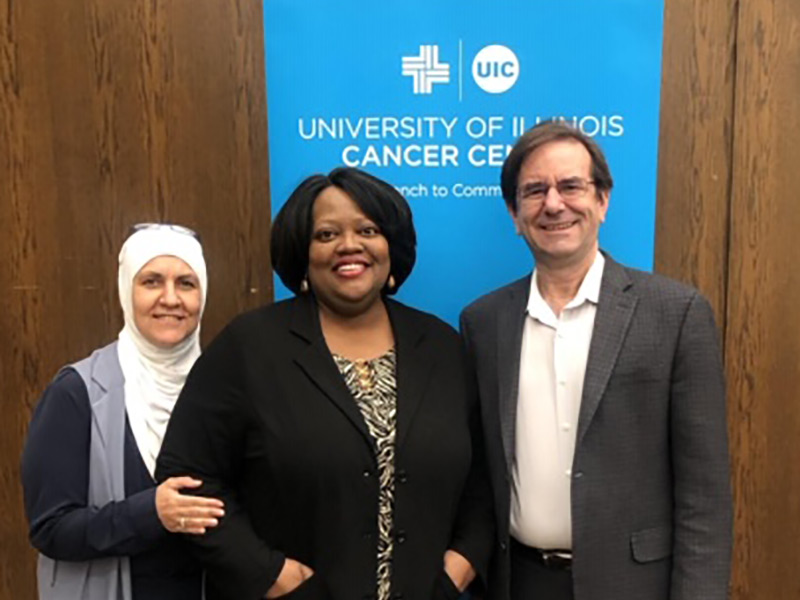
Connecting survivors to science
“I want access to information. I want women to see enough information about treatment options in a language they can understand.”
In addition to the shock of a rare ovarian cancer diagnosis, Kimberly Richardson also navigated friction and lack of support from key members of her medical team — and she soon learned she wasn’t alone. She’s determined to empower ovarian cancer survivors to share their stories and speak up for themselves, and to show the hope that comes from research by connecting the patients to the science, and making information more accessible to those who need it.
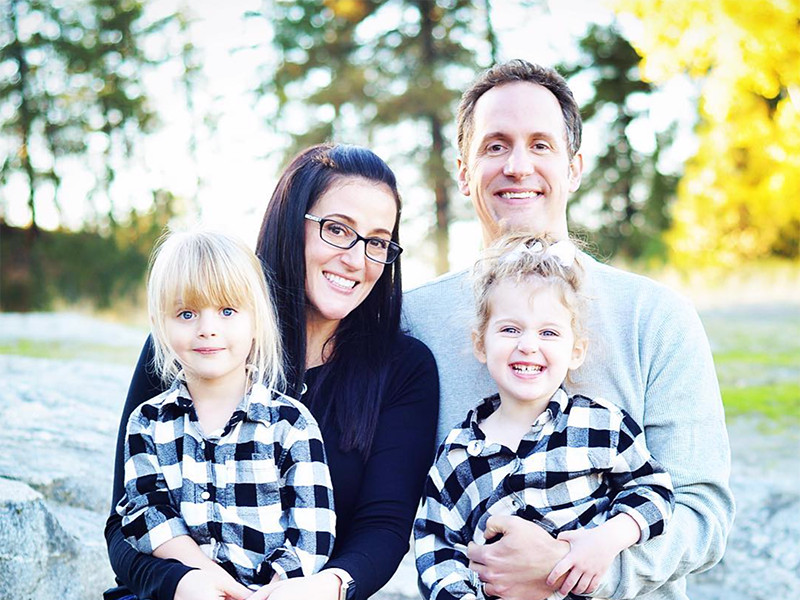
The mindset behind the mask
“I really didn’t care if people looked at me like I was a weirdo, or if they thought I might be sick. And that’s how it all started.”
Noel Rademacher, a 44-year-old mother of two and ovarian cancer survivor, started creating masks with teal ribbons on them to raise ovarian cancer awareness early on in the COVID-19 pandemic. Before she knew it, she was raising funds for research by selling her masks on Etsy with proceeds benefiting OCRA.
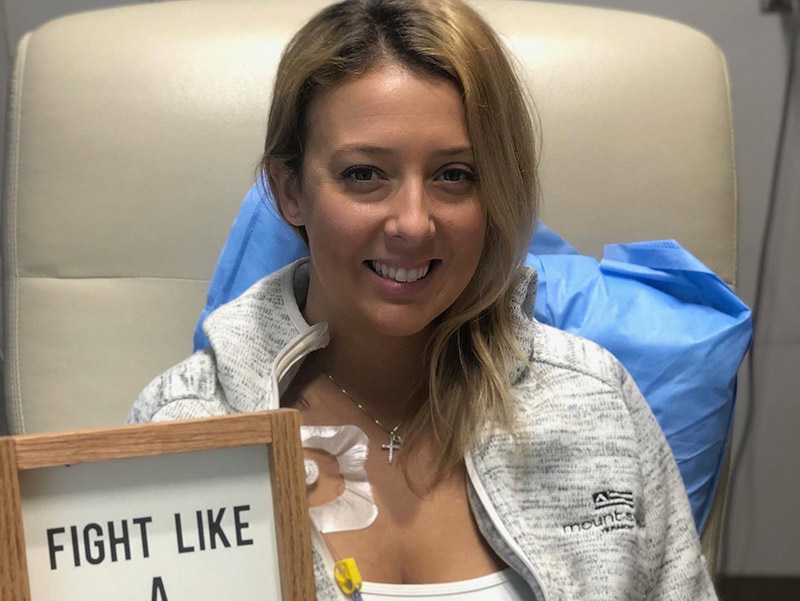
Raising critical funds for research
“Some friends would say ‘You’re going to be fine! You’ll get through it.’ Sometimes that’s what I needed … and sometimes it really wasn’t.”
Diagnosed at age 30 while she was looking into freezing her eggs, Morgan Gaynor is open about the challenges of navigating ovarian cancer as a young survivor. On a whim, she started what was ultimately a massively successful Facebook fundraiser for OCRA, rallying her family and friends to support research that will one day help others facing the disease.
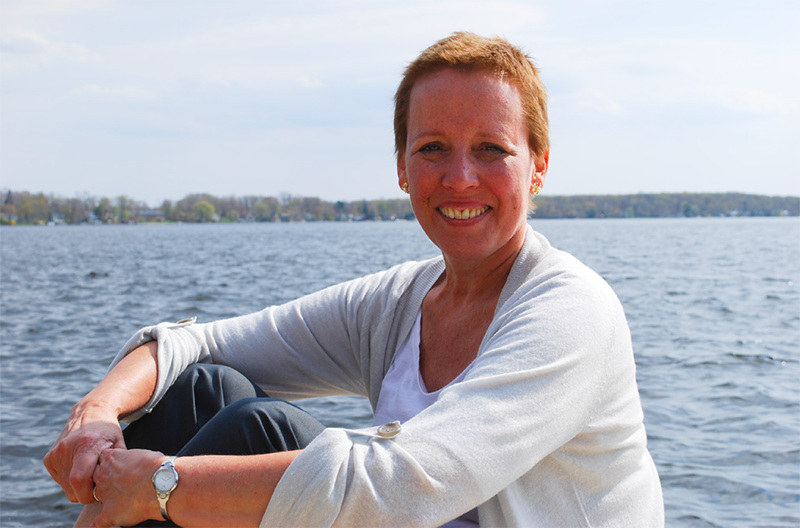
Writing for her life
“I have a lot of black humor at this point. You have to with this disease or you get depressed.”
A 20-year breast cancer survivor, Jane Rubin was diagnosed with primary peritoneal cancer ten years ago — despite having had her ovaries removed when she had a mastectomy. A writer, she penned a book of essays about her experience — and then, drawn to the family lore of her grandmother dying of “a woman’s disease,” she set out to tell her grandmother’s story as well.
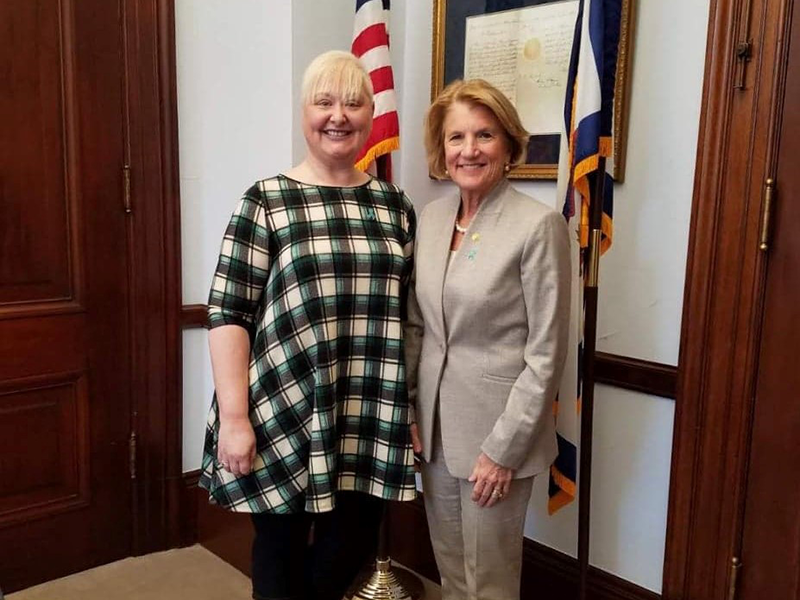
Shaking things up
“Once you’ve heard the word ‘cancer’ tied to your name, you don’t want to settle for anything less than a cure, less than the best treatment. You don’t want to settle for less than the best support system or for those who aren’t going to be there for you when you’re waking up at 2am crying.”
Roxanne Bright is a 9-year ovarian cancer survivor from West Virginia who is on a mission to use her voice for good. Propelled in part by survivor’s guilt at having “had it easier” than many others with the disease, and aware of how much she can help others by sharing her ovarian cancer story, she’s advocating for all survivors, patients and their loved ones as part of OCRA’s Advocate Leader program.
Programs for ovarian cancer survivors, patients and supporters
OCRA offers many programs for all gynecologic cancer and ovarian cancer survivors, as well as for patients at initial diagnosis, in treatment, and beyond.
OCRA’s Woman to Woman program
OCRA’s Woman to Woman is a unique program that pairs trained survivor Mentors with newly diagnosed gynecologic cancer patients, survivors, and loved ones. Mentors are matched with Mentees based on a number of factors, and are available at program sites across the country as well, and virtually through our national program.
OCRA’s Staying Connected Support Series
Led by licensed oncology social workers, OCRA’s Staying Connected is a virtual program that covers topics important to the gynecologic cancer community and is held weekly, monthly, and in limited-run series. Book Club and Express Yourself offer additional opportunity to connect with others and process the journey of diagnosis, treatment and beyond. Registration is required.
Online Support Community Through Inspire
This free Inspire support forum is a safe and private place to share encouraging feedback, compassionate support, and honest personal experiences.
More resources for ovarian cancer survivors and the gynecologic cancer community
- Need to talk? We’re here for you! OCRA’s Patient Support team is available to take your calls Monday – Friday, at 212-268-1002. Supported by grants from AstraZeneca, GSK, Merck, and GRAIL.
- For links to more ovarian cancer resources and gynecologic cancer resources, including financial assistance, health insurance navigation, clinical trial information, and more, visit the Resources section of our website.
Join the Circle of Hope and Courage
We hope you found solace in these ovarian cancer stories bravely shared by members of our community, and invite you to share your own story. If you or a loved one are facing ovarian cancer, please know that you are not alone. We encourage you to avail yourself of OCRA’s vital support programs and resources, where you can meet others who share your experience, and to support OCRA’s mission to cure ovarian cancer.
